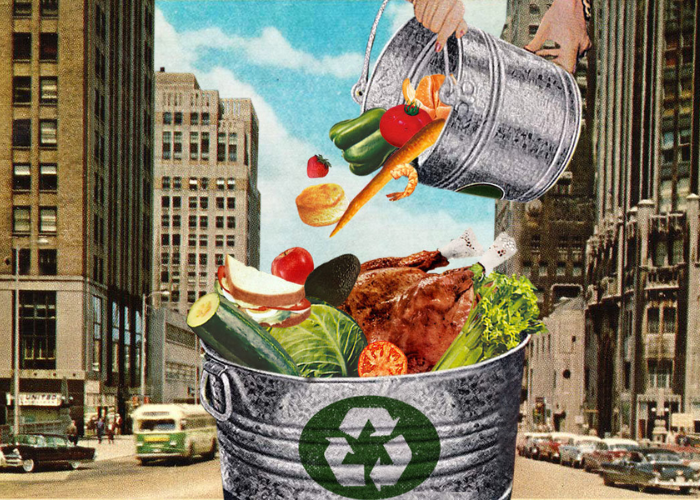Innovative tips to prevent food wasteBY PIETRO PAGANINI
- 31 January 2023
- Posted by: Competere
- Categories: highlights, News, SUSTAINABLE NUTRITION

On 5th February, Italy celebrates the National Day of Food Waste Prevention. It provides us with an opportunity to reflect more deeply at a European and global level.
1.3 BILLION TONS OF FOOD WASTED
Food loss and waste is a significant global problem, with around 1.3 billion tons, or a third of all food produced, lost or wasted annually (according to the FAO). This results in substantial financial losses and contributes significantly to greenhouse gas emissions, with the food waste sector producing 8% of global emissions.
In developing countries, food loss and waste totals around 230 million tons annually, equivalent to 30-40% of all food produced. A significant portion of the loss happens during harvest and post-harvest handling due to inadequate infrastructure, equipment, and storage facilities. Food waste in developing countries frequently has a more significant impact on food security, where poverty and food shortages are prevalent. Addressing food loss and waste in these countries is crucial for reducing hunger and improving food security.
HOW TO REDUCE FOOD LOSS AND WASTE?
Reducing food loss and waste is essential for both economic and environmental reasons and requires action across the food supply chain. The following immediate actions and technologies can be taken, especially in developing countries, where the problem is upstream in the supply chain due to inadequate infrastructure, equipment, and storage facilities:
- Use IoT sensors for food quality and temperature monitoring.
- Implement cold chain management systems for temperature-controlled food transport.
- Develop predictive analytics and machine learning for supply chain optimization.
- Adopt mobile and web-based food management apps for improved tracking and distribution.
- Adopt advanced packaging solutions to extend the shelf-life of perishable items.
- Develop smart food storage systems for better organization and inventory management.
- Implement Blockchain for food traceability and transparency.
- Use aeroponic and hydroponic systems for controlled-environment agriculture.
- Adopt advanced composting and anaerobic digestion systems for organic waste management.
- Use predictive maintenance and monitoring systems for food processing and packaging equipment.
In developed western countries, food waste occurs at the consumer level and is largely due to a lack of food culture and education. Individuals can take immediate actions to reduce food waste, such as:
- Meal and shopping planning: plan meals and shopping trips to minimise food waste. Create a grocery list based on weekly meal plans and stick to it.
- Proper food preservation: proper preservation extends food shelf-life. Store fruits and veggies in optimal temperature and humidity and use airtight containers for dry goods.
- Leftover utilization: Use leftovers to create new meals and reduce waste. E.g., leftover rice in stir-fry or veggies in soups or omelettes.
- Composting: composting transforms food scraps into nutrient-rich soil amendment for gardens, reducing waste.
- Surplus food donation: if you have surplus edible food, consider donating to a local food bank or soup kitchen.
- Sustainable agriculture support: support practices that reduce food loss, e.g. reducing use of harmful pesticides and fertilizers, promoting soil health.
- Awareness and education: raise awareness and educate on importance of reducing food loss and waste for a more sustainable food system.
By implementing these practices, individuals and communities can work together to fight food loss and waste, contributing to a more sustainable and equitable food system for all.
.
>>> Check the Sustainable Nutrition Platform for more articles on this topic <<<
Image credit: courtesy of Tyler Varsell for the NYT >>>
